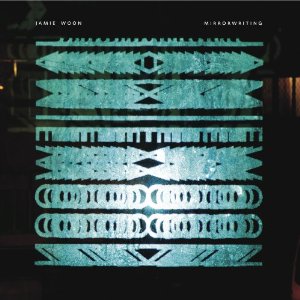The night bus has proven itself to be a surprisingly influential muse in recent years. Burial helped set the wheels in motion with his first two LPs, though it’s the XX who took his sonic template – the clatter of echoing beats ricocheting around a post-club headspace – and injected it with a sparse melody and innate grasp of restraint to create a fresh strain of post-tribal pop music.
A number of dubstep-influenced vocalists have since followed in their wake. At the front end we have James Blake with his chopped and slowly screwed chanson. Katy B continues to wield the Rinse FM playlist like a battleaxe as she continues her charge on the charts since ‘On a Mission’ and her guest turn on Magnetic Man’s ‘Perfect Stranger’.
Bring on Jamie Woon and his smooth voice into this sub-bass loving space. Like Katy B, he’s another Brit School graduate. And like Katy, one-time folky Woon has eschewed the stage school retro-soul of la Winehouse and Adele for a sound influenced by dubstep and other variants of UK dance. To underline this point, Woon even roped in Burial for production duty on Mirrorwriting‘s standout moment.
Another silky voiced young man smoothly crooning his away over a smattering of stuttering beats and bass, then? The comparisons with James Blake are there to be made – both artists were short listed in the BBC’s Sound of 2011 poll. Yet where Blake’s vocals often form part of a larger backdrop, Woon’s voice takes centre stage on Mirrorwriting and refuses to leave the spotlight for even a second.
Opener ‘Night Air’ originally released in 2010 with Burial on production duties, emits an alluring stench of nocturnal lust and the empty space glimpsed between lampposts on an early morning journey home. Follower ‘Streets’ shifts tempo with a softly jacking backbeat that thrusts Woon’s dulcet tones into a velvety world of stuttery electro-pop. Unfortunately, after hitting atmospheric heights early on, Mirrorwriting crashes back to earth. ‘Middle’ is a sexless stab at Junior Boys light mixed with lover-lover man platitudes about not getting enough of ‘your love.’ ‘Lady Luck’ is simply Timberlake boy-pop sans sex fizz.
For all of Woon’s attempts at fusing swoonsome vocals with the thinking-mans preferred beats of the moment – a magpie mix of dubstep beats, quasi New Jack swagger and a splash of chart R&B – the final result falls short of the genre-bending pop-step that Woon clearly has his sights set on. What’s left is a passable imitation of early-naughts US chart R&B completely devoid of the sex-fuelled pop thrills and innovative tics that defined the best of the Neptunes and Timbaland’s productions from the era.
In Woon’s case, it may look like the night bus has stranded him in blue-eyed soul terrain. But even then, the finest practioners of blow-dried smooth pop understand you need to swing before attempting a buttery landing and that’s a lesson that, as it limply comes to a final stop, clearly fails to register on Mirrorwriting.


